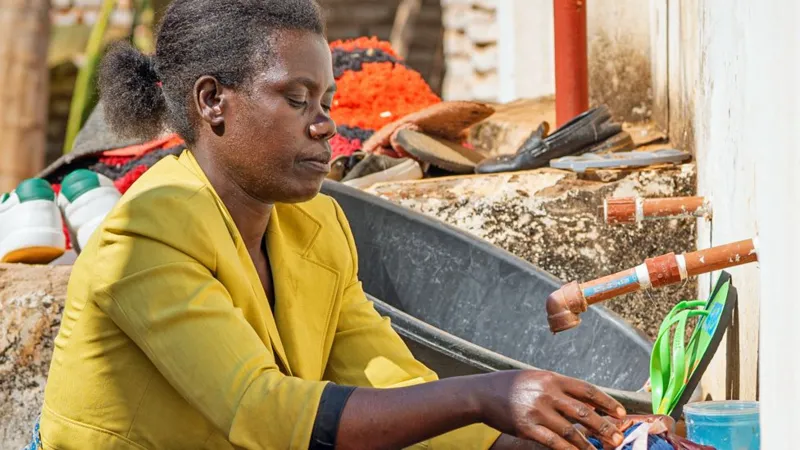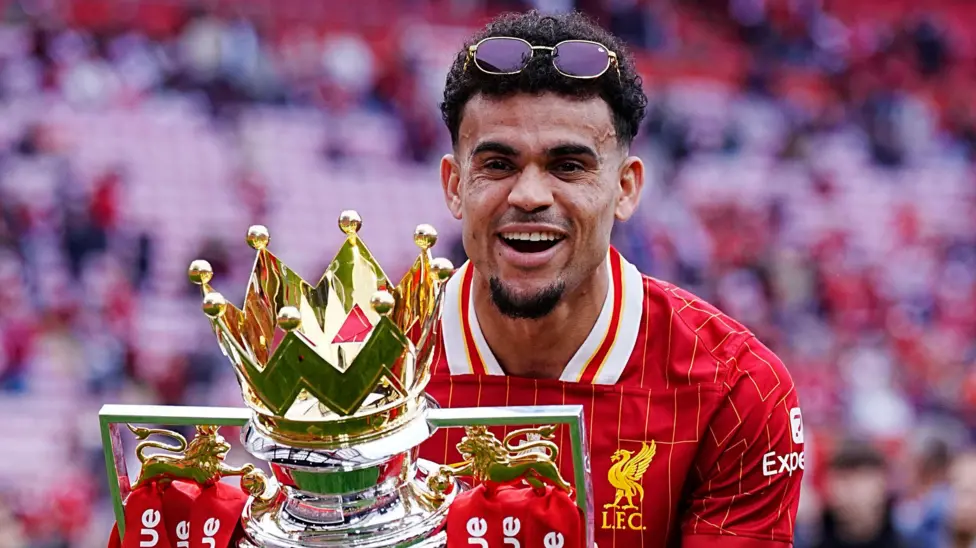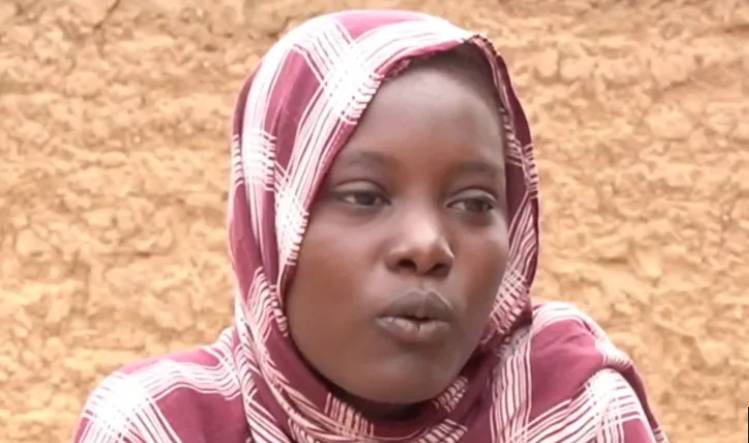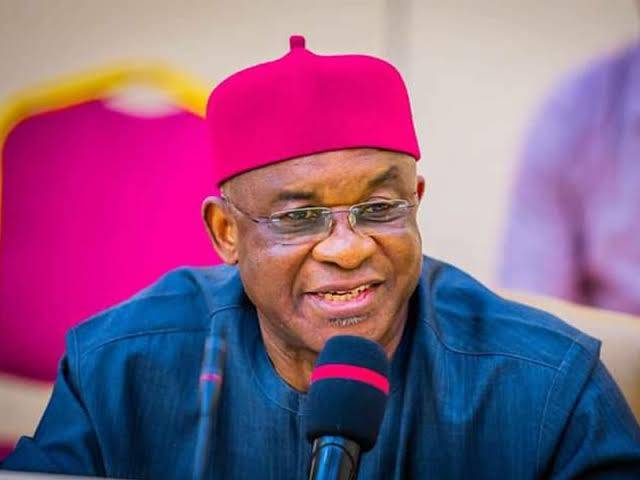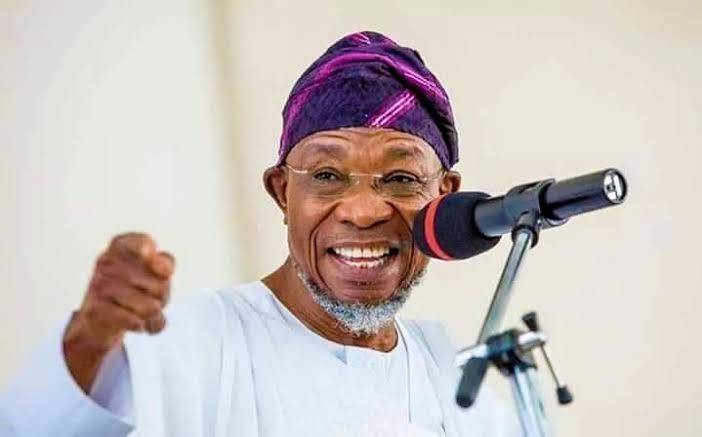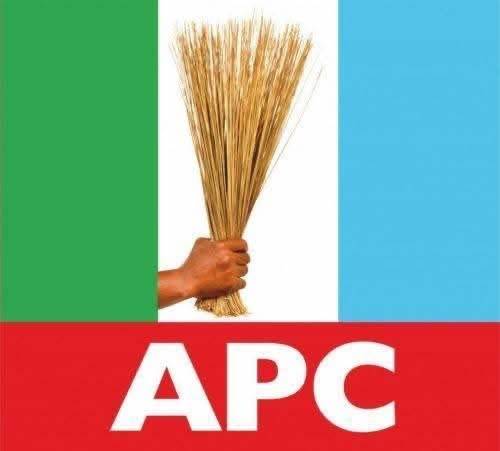By Sam Omatseye
Not many young people know Frank Kokori. Not many old acknowledge him. He inhabits the bald region between nostalgia and optimism. So, indifference besieged him when he died last week. His blood turned cold in a country that gave him a cold shoulder. What did not leave him was his courage.
He was betrayed in death. This essayist warned of this moment. I wrote that we should not rush to his help only after he died. That note was optimistic. His death came like a whimper. He died like a pauper. Shakespeare wrote that “when beggars die, there are no comets seen. The heavens themselves blaze forth the death of princes.” He lived a prince of virtue but died a beggar of neglect.
The news flashed his death December 7, and all over the social media and newspaper websites. Journalists did their duty. By the end of the day, only few personages had released any homages. Maybe there were closet tears, but he was no closet icon. Not even the Nigerian Labour Congress (NLC) mourned until the next day.
Ajaero or Agbero was suited up in air-conditioned hallways in Dubai, sipping tea at COP28. Festus Osifo was in oblivion. Were they go doolally tap because he pleaded with both unions not to strike but give the Tinubu government “some time to rebuild the country?” Is it malice against the dead?
They went on strike over a black eye for Ajaero’s partisan drivel. But their eyes did not moist over the death and apotheosis of a genuine hero not only of labour, but of democracy. Even politicians who are benefitting from his heroics heard of his death but they are dead from the neck up. A boo for them.
This essayist had warned that we should not cry but care and not wait to care for his beloved as a late mea culpa. Maybe they are waiting for his obsequies since any statement now would be afterthought. The first prominent statement came from Delta State Governor Sheriff Oborevwori. In a taped statement before he died, Kokori gushed about his state governor. Kokori thanked him “for showing concern during his stay in the hospital. That he never knew Oborevwori was such a good man.” He said the governor “wasn’t close to him as some people.” The Delta State governor had picked up his bill and demonstrated empathy by paying him a visit. An applause for him.
The presidency also appreciated him and a statement from President Bola Tinubu showed appreciation of the matador – my words – during the struggle to redeem this nation from the stranglehold of a military gangster – my words.
But most of those who wrote tributes were not the top men of the society. It is sad indeed. Is it because he was an oil man? Or is it because he was a minority, an Urhobo man? Would he suffer like this if he was Igbo, Hausa-Fulani or Yoruba? If he were some other people, they would have whisked him early to Europe or the US. That might have saved his life even for another half a decade or even longer. Who knows? Not even the oil industry, the treasure of the economy, with its peacock wealth, rallied for him. Nor did his party come to his rescue when he was alive, not in the state or at the national level. Kudos to Femi Otedola, though, for the routine nobility of his charity for ailing. A clap for him.
Kokori was betrayed in death as he was in life. But this betrayal, including his neglect in his dying days, was the second perfidy. The first happened when he was the scribe of the Nigerian Union of Petroleum and Natural Gas (NUPENG). He was in hiding in the days of Sani Abacha’s demoniac terrors. A goggled brute and impostor with his jackboot on the people’s mandate. Kokori was on the run so the hope of democracy could not ruin. Somebody Kokori trusted, who had access to his phone number, drew him out of his shadows in Lagos. The junta fumed and feared Kokori. He had made the nation ungovernable for the Abacha street gang of soldiers. He crippled the country by mobilizing oil workers to down tools. To cripple the oil sector was to cripple the country. The man who did it was Kokori. Politicians could not cripple the country as he did. Only workers could. He held the gauntlet, gaunt as he looked. His life was on the line. Abacha’s gulag masters combed the country until they took hold of a man who could lure him out. At that time, Abacha had nabbed Enahoro. So, he was told that Kokori had to be the rallying point. He had to be secure. Aremo Segun Osoba, according to Kokori, had warned him to stay out of sight. Osoba was also taking care of Kokori’s family. Kokori acknowledged that and thanked him. In his memoirs, The Struggle for June 12, Kokori said one Fred Eno, who was Abiola’s aide, aided the SSS to his lair. He called Kokori to come out to obtain certain materials. Kokori obliged and disclosed his location. The goons nabbed him and wanted to throw him in the car. Failing that, they wanted to toss him in the boot. Failing that, they immobilized him with a spray and pushed him in the car. Biceps failed to conquer a scrawny soldier of the people. He said one of the goons uttered Urhobo to him and he ignored him. They had started pounding him until he warned that if they killed him the country would be “set ablaze.” That restrained them. It was then the so-called Urhobo man wafted the sultry car with his folksy air.
Fred Eno has denied he called Kokori. It was not the age of AI and I wonder why Kokori could have responded if he did not recognise the voice and phone number of his fellow traveler in rebellion. That Kokori survived was a saving grace for Chief Osoba, who had been accused of selling him out. Kokori cleared the veteran journalist and former governor of Ogun State in his book. May our grace not die in the grave. If Kokori did not survive Abacha’s gulag, the wrong would have haunted his name forever. The Roman poet Horace wrote: “A word once let out of the cage cannot be whistled back again.” Osoba had the good fortune of reversing the word to its resting place.
Kokori was small, but physique did not define him. His name made headlines in the stormy hour of June 12. They sought him everywhere the way they sought some of the titans of the day like Rewane, Soyinka, now President Tinubu, Enahoro, Kaltho, Ubani and some media defiants like Onanuga, Igiebor, Alex Kabba, et al. It was a testy moment. Rewane and Kaltho were slaughtered. It was a period of gallantry and death, treachery and opportunism, manoeuvres and ingenuity, scarcity and perfidy. The streets were empty, except when they bled with protests. Workers did not know when to go to work and when to stay at home. Some grew rich from disloyalty. Democracy turned into an enterprise. It was a quicksand for values. Sometimes it was not clear who was for the country and who wanted to profit. Some who claimed to be for the country fattened and exploited the hour for personal boon. We saw open defections and stealth loyalty. The defections smelled like public defecation. The dark was shelter for imposture. Light was blinding.
People were getting medals of praise for serving self. In the name of buoying democracy, they were buying sellouts. It is like the soldier in Hemmingway’s novel Farewell to Arms who gets a medal of honour for doing nothing. Same we see in Tolstoy’s opus War and Peace when Prince Andre feels out of sorts for being bemedalled for reporting a phony victory to the emperor. He wants to go back to war in order to deserve the honour even as Napoleon is storming towards the city. In our case, many did not deserve it but feigned applause in fables of heroics. They told their own lies to lie gloriously in their sty.
The true hero was Kokori; no one more so than he. In the history of labour struggles, I don’t know of a better hero. Not even Imoudu, the eponym of Nigerian labour, grazed death like Kokori. No knock on the patriarch who had brushes with colonial powers, like his deportation from Lagos for years. But his life was not in peril like Imoudu. Not even Zik when he proclaimed Gerald Whitley sought after his life and said, “I go to the bush whence I came. But if it is the will of providence that I should die by the bullet of a European assassin, I go with divine confidence and spiritual satisfaction that I have served mother Africa to the extent of my physical ability.” It was all bluster. No one wanted a hair of Zik’s head. Kokori was under real threat. He ranks like anyone in making democracy what it is today. He died from devastation to his health when the despots took him. He deserves a national monument. It is true, as Senegalese writer David Diop writes in his enthralling new novel about slavery, “the historical monuments of the Senegalese people can be found in their stories…” Yet, physical monuments in form of buildings, streets names, et al, are snapshot tributes for the unwary.
He went into the gulag a thin man. He came out a gaunt man. He did not lose his guts. He was a tiny dynamo. When Sigmund Freud died, poet W.H. Auden wrote he was “no more a person but a whole climate of opinion.” Kokori was a climate of the struggle.
He lived a courage, and died one. He himself said he was born so and would die so. In the words of Dylan Thomas, he did not “go gentle into that good night.” He fought to die on his birthday, just as Churchill on his father’s birthday. He is like the elegy of Poet Mayakovski for the Russian legend Vladimir Lenin: “We ‘re burying the earthliest of beings that ever came /to play an earthly part / Earthly, yes; but not the earth-bound kind /who’ll never peer beyond the precincts of their sty. /He took in all the planet at a time, /saw things out of reach for the common eye.”
Kokori has gone, and he surrendered his flesh and blood. But he left us his spirit.
Not many young people know Frank Kokori. Not many old acknowledge him. He inhabits the bald region between nostalgia and optimism. So, indifference besieged him when he died last week. His blood turned cold in a country that gave him a cold shoulder. What did not leave him was his courage.
He was betrayed in death. This essayist warned of this moment. I wrote that we should not rush to his help only after he died. That note was optimistic. His death came like a whimper. He died like a pauper. Shakespeare wrote that “when beggars die, there are no comets seen. The heavens themselves blaze forth the death of princes.” He lived a prince of virtue but died a beggar of neglect.
The news flashed his death December 7, and all over the social media and newspaper websites. Journalists did their duty. By the end of the day, only few personages had released any homages. Maybe there were closet tears, but he was no closet icon. Not even the Nigerian Labour Congress (NLC) mourned until the next day.
Ajaero or Agbero was suited up in air-conditioned hallways in Dubai, sipping tea at COP28. Festus Osifo was in oblivion. Were they go doolally tap because he pleaded with both unions not to strike but give the Tinubu government “some time to rebuild the country?” Is it malice against the dead?
They went on strike over a black eye for Ajaero’s partisan drivel. But their eyes did not moist over the death and apotheosis of a genuine hero not only of labour, but of democracy. Even politicians who are benefitting from his heroics heard of his death but they are dead from the neck up. A boo for them.
This essayist had warned that we should not cry but care and not wait to care for his beloved as a late mea culpa. Maybe they are waiting for his obsequies since any statement now would be afterthought. The first prominent statement came from Delta State Governor Sheriff Oborevwori. In a taped statement before he died, Kokori gushed about his state governor. Kokori thanked him “for showing concern during his stay in the hospital. That he never knew Oborevwori was such a good man.” He said the governor “wasn’t close to him as some people.” The Delta State governor had picked up his bill and demonstrated empathy by paying him a visit. An applause for him.
The presidency also appreciated him and a statement from President Bola Tinubu showed appreciation of the matador – my words – during the struggle to redeem this nation from the stranglehold of a military gangster – my words.
But most of those who wrote tributes were not the top men of the society. It is sad indeed. Is it because he was an oil man? Or is it because he was a minority, an Urhobo man? Would he suffer like this if he was Igbo, Hausa-Fulani or Yoruba? If he were some other people, they would have whisked him early to Europe or the US. That might have saved his life even for another half a decade or even longer. Who knows? Not even the oil industry, the treasure of the economy, with its peacock wealth, rallied for him. Nor did his party come to his rescue when he was alive, not in the state or at the national level. Kudos to Femi Otedola, though, for the routine nobility of his charity for ailing. A clap for him.
Kokori was betrayed in death as he was in life. But this betrayal, including his neglect in his dying days, was the second perfidy. The first happened when he was the scribe of the Nigerian Union of Petroleum and Natural Gas (NUPENG). He was in hiding in the days of Sani Abacha’s demoniac terrors. A goggled brute and impostor with his jackboot on the people’s mandate. Kokori was on the run so the hope of democracy could not ruin. Somebody Kokori trusted, who had access to his phone number, drew him out of his shadows in Lagos. The junta fumed and feared Kokori. He had made the nation ungovernable for the Abacha street gang of soldiers. He crippled the country by mobilizing oil workers to down tools. To cripple the oil sector was to cripple the country. The man who did it was Kokori. Politicians could not cripple the country as he did. Only workers could. He held the gauntlet, gaunt as he looked. His life was on the line. Abacha’s gulag masters combed the country until they took hold of a man who could lure him out. At that time, Abacha had nabbed Enahoro. So, he was told that Kokori had to be the rallying point. He had to be secure. Aremo Segun Osoba, according to Kokori, had warned him to stay out of sight. Osoba was also taking care of Kokori’s family. Kokori acknowledged that and thanked him. In his memoirs, The Struggle for June 12, Kokori said one Fred Eno, who was Abiola’s aide, aided the SSS to his lair. He called Kokori to come out to obtain certain materials. Kokori obliged and disclosed his location. The goons nabbed him and wanted to throw him in the car. Failing that, they wanted to toss him in the boot. Failing that, they immobilized him with a spray and pushed him in the car. Biceps failed to conquer a scrawny soldier of the people. He said one of the goons uttered Urhobo to him and he ignored him. They had started pounding him until he warned that if they killed him the country would be “set ablaze.” That restrained them. It was then the so-called Urhobo man wafted the sultry car with his folksy air.
Fred Eno has denied he called Kokori. It was not the age of AI and I wonder why Kokori could have responded if he did not recognise the voice and phone number of his fellow traveler in rebellion. That Kokori survived was a saving grace for Chief Osoba, who had been accused of selling him out. Kokori cleared the veteran journalist and former governor of Ogun State in his book. May our grace not die in the grave. If Kokori did not survive Abacha’s gulag, the wrong would have haunted his name forever. The Roman poet Horace wrote: “A word once let out of the cage cannot be whistled back again.” Osoba had the good fortune of reversing the word to its resting place.
Kokori was small, but physique did not define him. His name made headlines in the stormy hour of June 12. They sought him everywhere the way they sought some of the titans of the day like Rewane, Soyinka, now President Tinubu, Enahoro, Kaltho, Ubani and some media defiants like Onanuga, Igiebor, Alex Kabba, et al. It was a testy moment. Rewane and Kaltho were slaughtered. It was a period of gallantry and death, treachery and opportunism, manoeuvres and ingenuity, scarcity and perfidy. The streets were empty, except when they bled with protests. Workers did not know when to go to work and when to stay at home. Some grew rich from disloyalty. Democracy turned into an enterprise. It was a quicksand for values. Sometimes it was not clear who was for theq country and who wanted to profit. Some who claimed to be for the country fattened and exploited the hour for personal boon. We saw open defections and stealth loyalty. The defections smelled like public defecation. The dark was shelter for imposture. Light was blinding.
People were getting medals of praise for serving self. In the name of buoying democracy, they were buying sellouts. It is like the soldier in Hemmingway’s novel Farewell to Arms who gets a medal of honour for doing nothing. Same we see in Tolstoy’s opus War and Peace when Prince Andre feels out of sorts for being bemedalled for reporting a phony victory to the emperor. He wants to go back to war in order to deserve the honour even as Napoleon is storming towards the city. In our case, many did not deserve it but feigned applause in fables of heroics. They told their own lies to lie gloriously in their sty.
The true hero was Kokori; no one more so than he. In the history of labour struggles, I don’t know of a better hero. Not even Imoudu, the eponym of Nigerian labour, grazed death like Kokori. No knock on the patriarch who had brushes with colonial powers, like his deportation from Lagos for years. But his life was not in peril like Imoudu. Not even Zik when he proclaimed Gerald Whitley sought after his life and said, “I go to the bush whence I came. But if it is the will of providence that I should die by the bullet of a European assassin, I go with divine confidence and spiritual satisfaction that I have served mother Africa to the extent of my physical ability.” It was all bluster. No one wanted a hair of Zik’s head. Kokori was under real threat. He ranks like anyone in making democracy what it is today. He died from devastation to his health when the despots took him. He deserves a national monument. It is true, as Senegalese writer David Diop writes in his enthralling new novel about slavery, “the historical monuments of the Senegalese people can be found in their stories…” Yet, physical monuments in form of buildings, streets names, et al, are snapshot tributes for the unwary.
He went into the gulag a thin man. He came out a gaunt man. He did not lose his guts. He was a tiny dynamo. When Sigmund Freud died, poet W.H. Auden wrote he was “no more a person but a whole climate of opinion.” Kokori was a climate of the struggle.
He lived a courage, and died one. He himself said he was born so and would die so. In the words of Dylan Thomas, he did not “go gentle into that good night.” He fought to die on his birthday, just as Churchill on his father’s birthday. He is like the elegy of Poet Mayakovski for the Russian legend Vladimir Lenin: “We ‘re burying the earthliest of beings that ever came /to play an earthly part / Earthly, yes; but not the earth-bound kind /who’ll never peer beyond the precincts of their sty. /He took in all the planet at a time, /saw things out of reach for the common eye.”
Kokori has gone, and he surrendered his flesh and blood. But he left us his spirit.
Culled from The Nation




